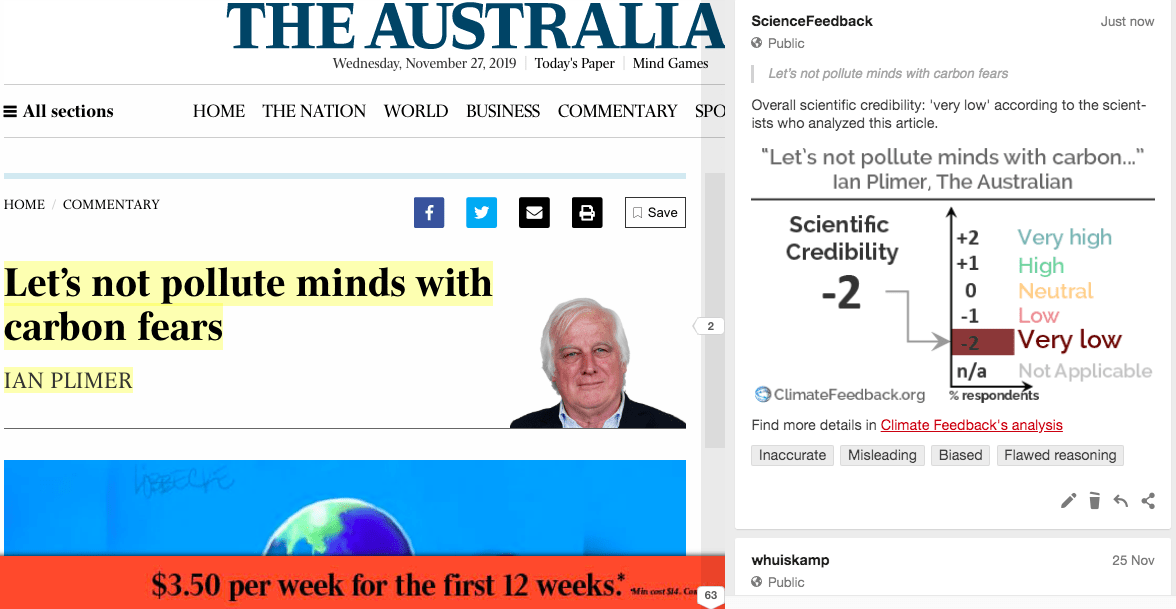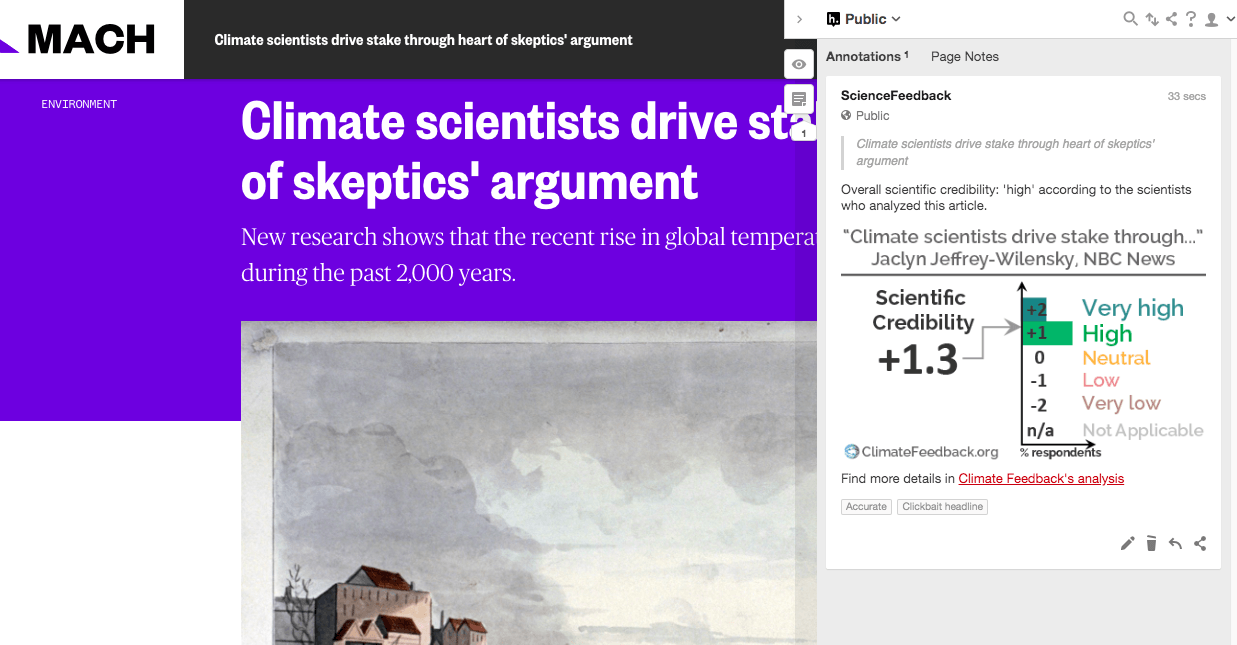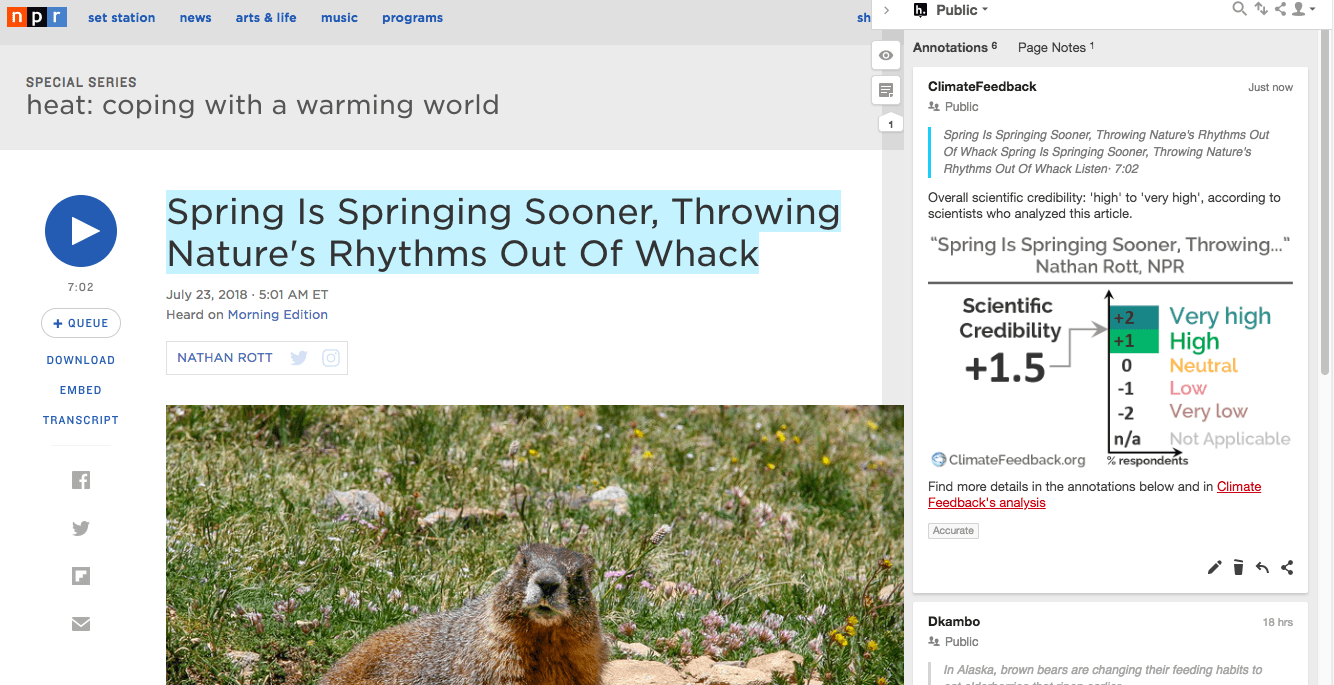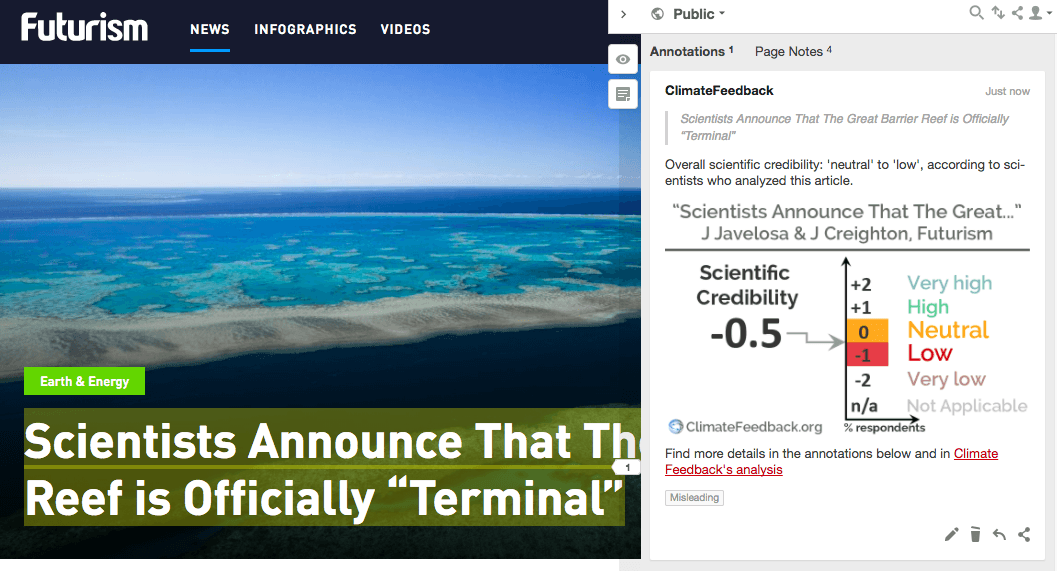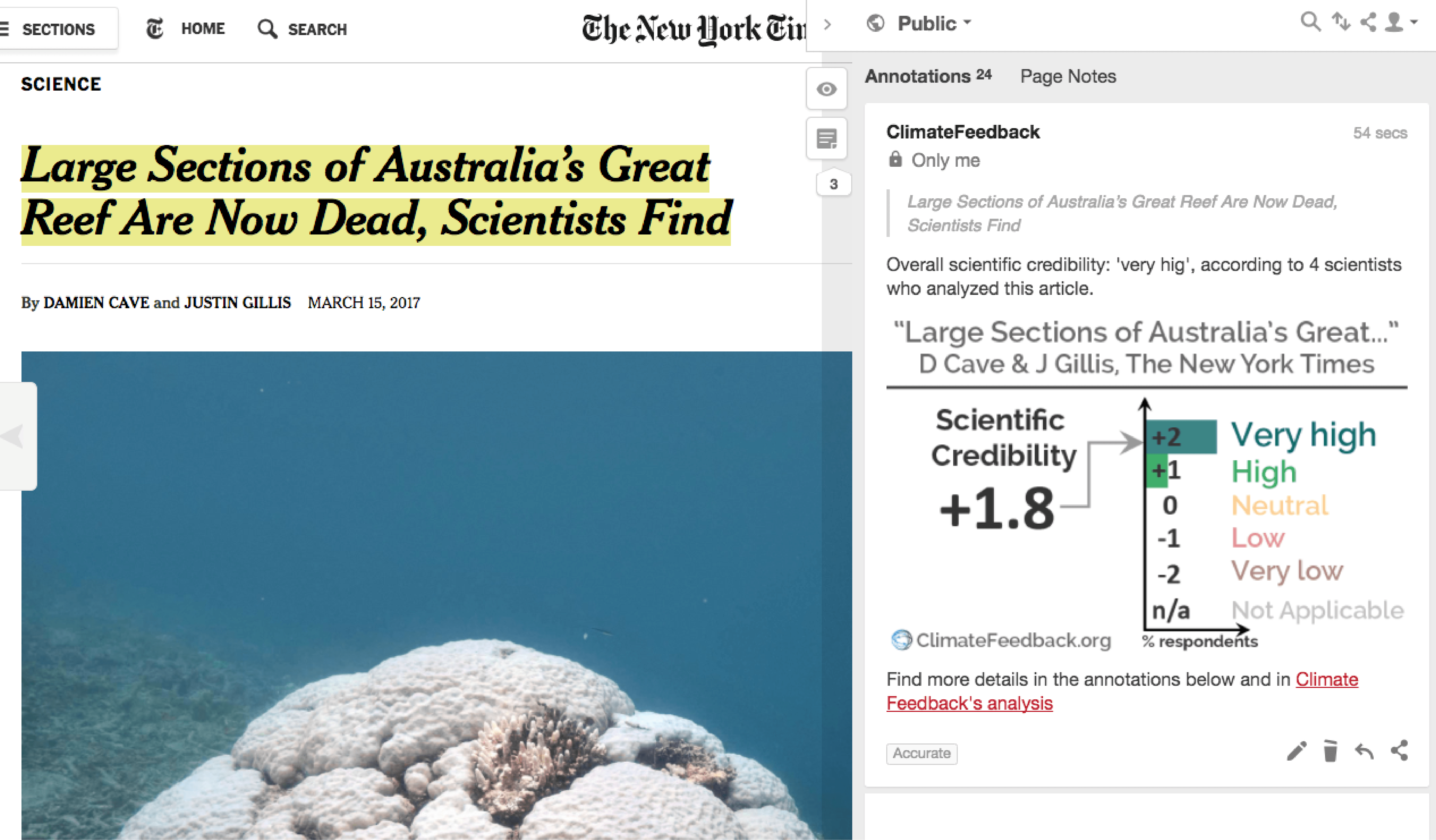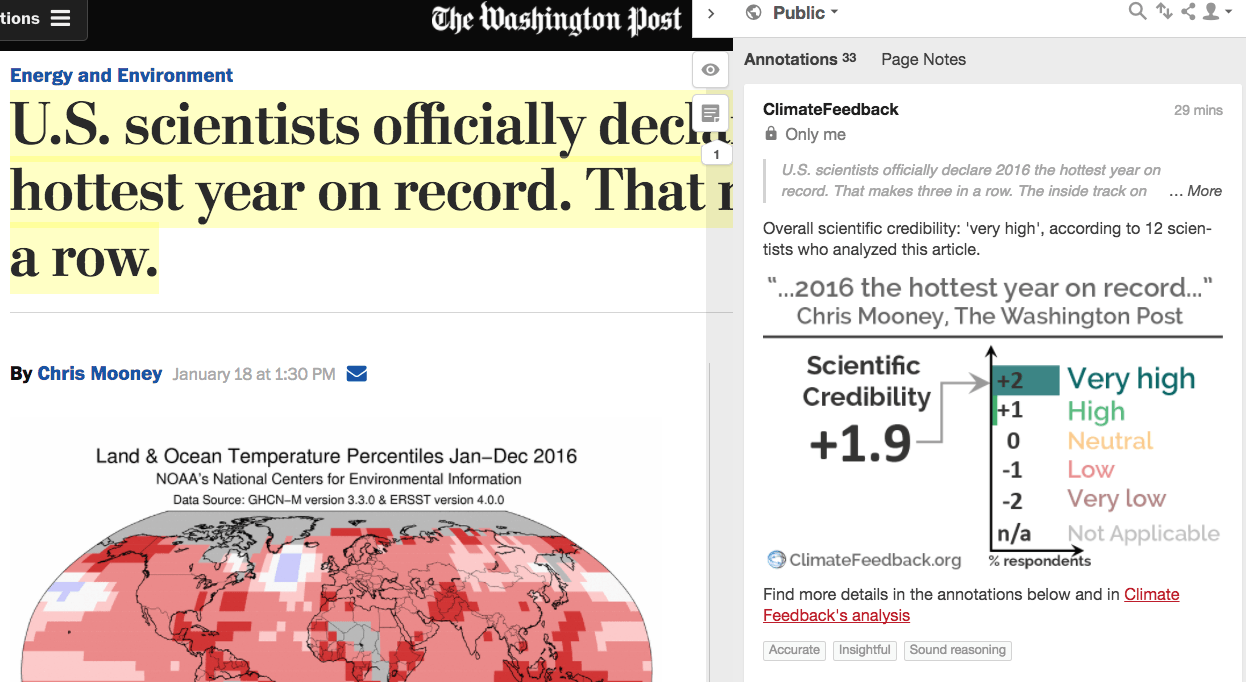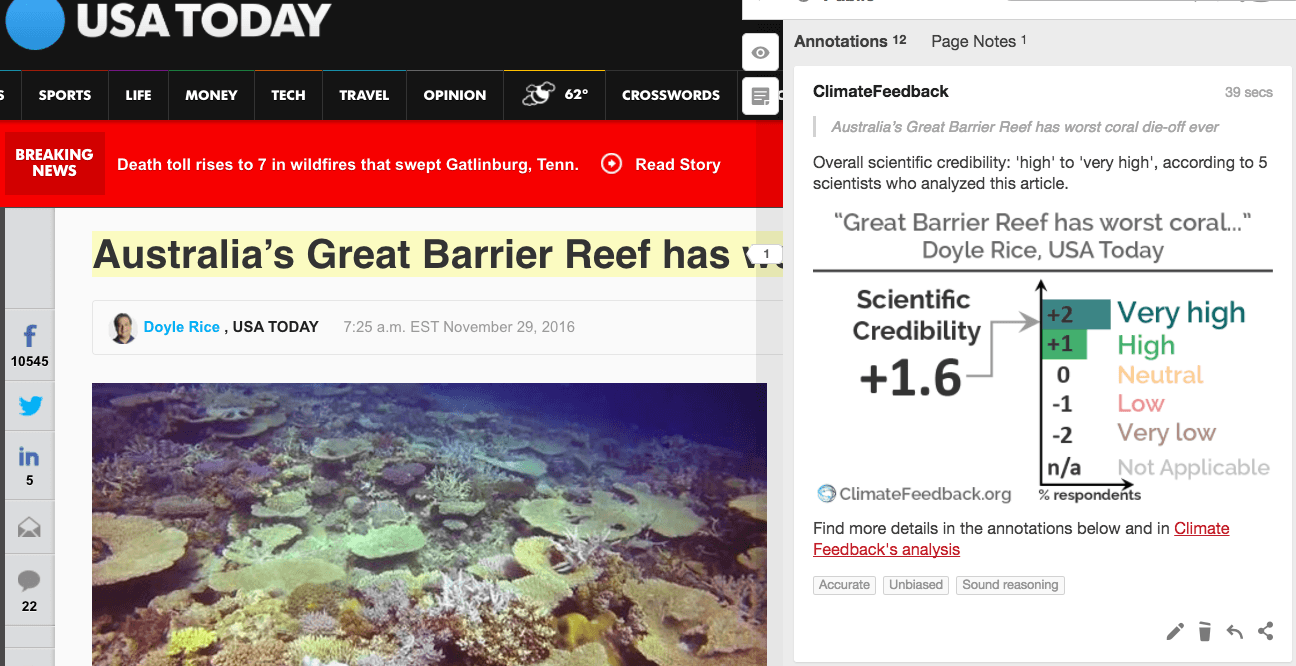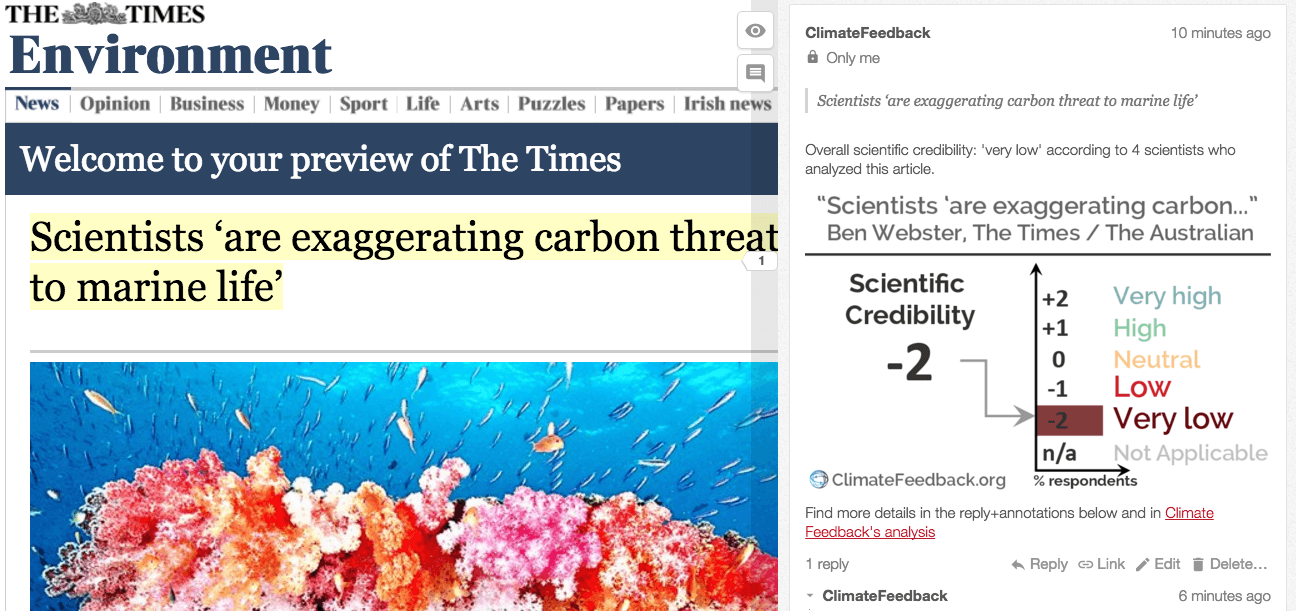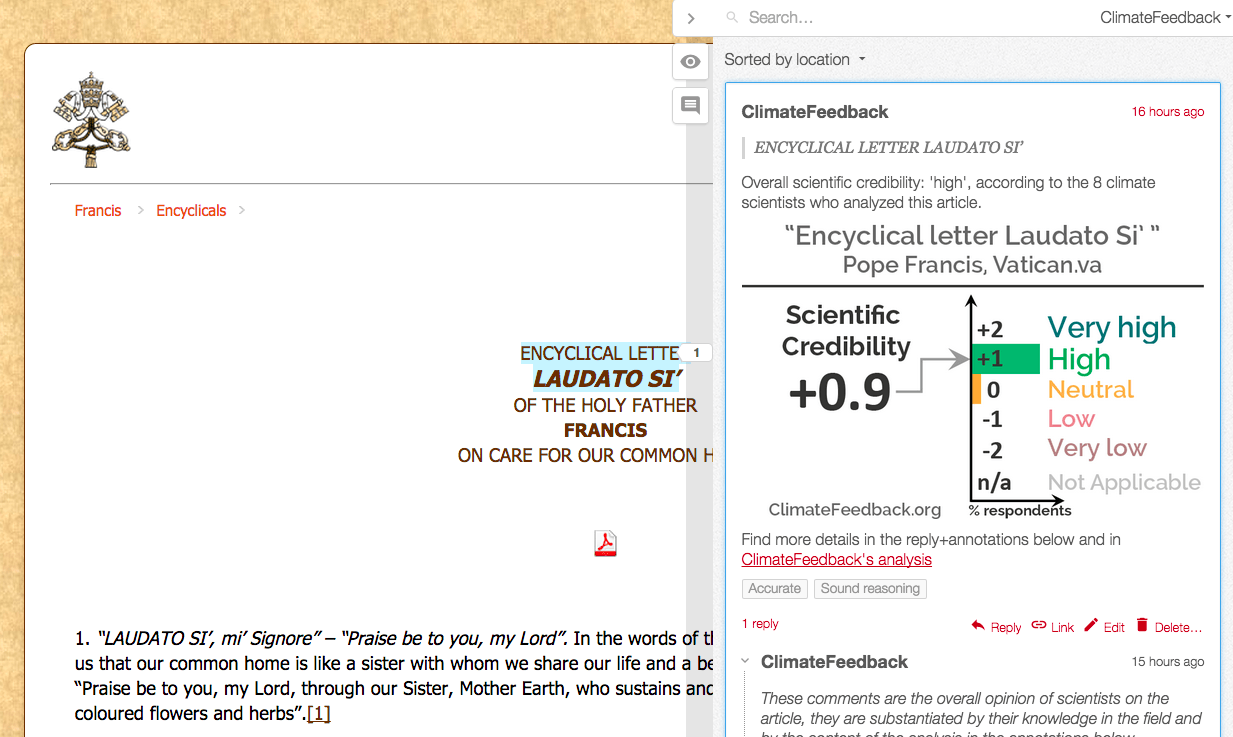.
Mark Eakin
Scientist, Coordinator of NOAA’s Coral Reef Watch, National Oceanic and Atmospheric Administration
Expertise: Impact of climate change on coral reefs
Details:
![]() Hypothesis handle: mark.eakin
Hypothesis handle: mark.eakin
ARTICLES REVIEWED
Ian Plimer op-ed in The Australian again presents long list of false claims about climate
in The Australian, by Ian Plimer
— 26 Nov 2019
"This article is a mixture of misdirection, misleading claims, and outright falsehoods. The author attempts to paint a picture of current climate change as simply a continuation of..
NBC News story accurately covers research on two millennia of climate history
in NBC News, by Jaclyn Jeffrey-Wilensky
— 30 Jul 2019
"This accurately describes new peer-reviewed research and asks independent scientists with relevant expertise to provide important context, such as how these results rely on limite..
NPR story accurately describes ecological consequences of altered spring timings in a warming climate
in NPR, by Nathan Rott
— 27 Jul 2018
"This article at NPR discusses what happens when warm spring weather arrives earlier because of climate change. Animals must adjust to changes in the timing of plant flowering, for..
Futurism story on Great Barrier Reef compromised by sensational headline
in Futurism, by June Javelosa and Jolene Creighton
— 16 Jan 2018
"The content is almost all correct, but the attention-grabbing headline is wrong and isn't supported by the quotes from two scientists or by the rest of the content.
Analysis of “Large Sections of Australia’s Great Reef Are Now Dead, Scientists Find”
in The New York Times, by Justin Gillis & Damien Cave
— 18 Mar 2017
While natural temperature fluctuations (due to El Niño, for example) have always occurred, they are now superimposed on a warmer background due to human-induced global warming. Th...
Analysis of “U.S. scientists officially declare 2016 the hottest year on record. That makes three in a row.”
in The Washington Post, by Chris Mooney
— 19 Jan 2017
"The article accurately conveys the US agencies' declaration of 2016 as the hottest year on record. It provides some good background material on why the agencies' numbers differ sl..
Analysis of “Australia’s Great Barrier Reef has worst coral die-off ever”
in USA Today, by Doyle Rice
— 30 Nov 2016
"This article is mostly accurate ... the frequency of massive bleaching events is increasing, will continue to increase in the near future, and these events do not need to occur an..
Analysis of “Scientists are exaggerating carbon threat to marine life”
in The Times / The Australian, by Ben Webster
— 04 Mar 2016
"This article misses some major intellectual points about ocean acidification, thanks to what seems to be a willful misunderstanding and misquoting of an interview with Dr. Browman..
Analysis* of Pope Francis’ Encyclical Laudato Si
in Vatican.va, by Pope Francis
— 22 Jun 2015
"The evidence presented in support of the anthropogenic footprint of environmental problems in general and climate change in particular was overall accurate and relevant. "
CLAIMS REVIEWED
The world’s coral reefs are severely threatened by climate change and other human impacts, as ABC story notes
CLAIM
90 per cent of the world's coral reefs will disappear in the next 35 years due to coral bleaching induced by global warming, pollution and over-development.
SOURCE: Greg Hassall & Rebecca Latham, ABC News
Published: 27 Feb 2017
VERDICT


